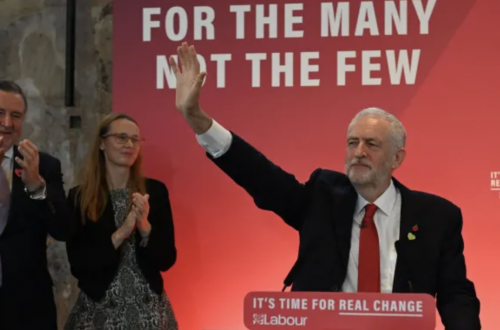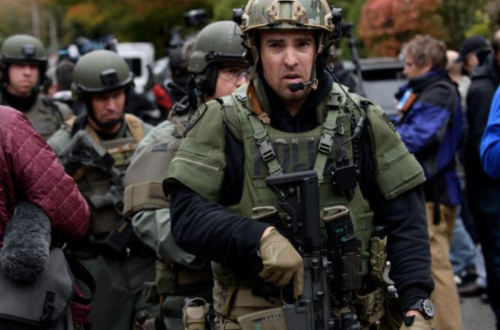(This is a guest post by David Rosenberg)
Opponents of Zionism are accused of refusing to recognise “the Jewish right to self determination”. But what does Jewish self-determination mean and where is it practised?
Jewish self-determination has generally meant the right to live freely and make choices as a Jew, both individually and collectively; the right to create and join Jewish institutions and organisations, speak Jewish languages, read Jewish newspapers and literature, eat Jewish food; the right to carry out Jewish religious practices, celebrate Jewish festivals, be buried in a Jewish cemetery. And, of course, to not be discriminated against on the grounds of Jewishness.
Jewish self-determination took on a new dimension in 1948 when Israel proclaimed itself the “homeland of the Jewish people”, where Jews exercised political sovereignty.
In the period of mass Jewish emigration from Eastern Europe at the turn of the 20th century, only a small minority supported the Zionist version of Jewish self-determination. Around 2% of Russian Jewish emigrants headed for Palestine, while a few other “territorialists” scoured any remote location for a potential Jewish homeland. Most Jews, though, sought their self-determination where they lived.
You can reject the Zionist definition of self-determination, without rejecting Jewish rights to self-determination as such, as the Bundist, Emanuel Scherer did when, after the Holocaust, he demanded:
“rights for Jews everywhere without wrongs and injustices to other people anywhere.”
He was uncompromising about Jewish rights while making it clear that forms of self determination that harmonise rights with others are more valuable than a self-determination based on domination and suppressing the rights of others.
Few Bundists survived the Holocaust, but their ideas should still resonate for those seriously addressing 21st century Jewish realities. In “Perspectives” (New York 1964), Bundist Holocaust survivors argued that “the Jewish question” could be solved both by changing the conditions of the peoples among whom the Jews live and by Jews exercising cultural autonomy wherever they lived.
“Instead of an ‘exodus’ – or ‘an ingathering of exiles’ proclaimed as a main aim of Israeli Zionism, the Bund advocates greater cooperation with the non-Jewish world…instead of fear and suspicion of non-Jews inculcated by Zionism, the Bund offers faith in mankind…Israel does not, and cannot claim the right to, represent the Jews outside of Israel, ie the majority of the Jewish people. Their policies of Hebraisation of Jewish life and the downgrading of all Jewish communities outside Israel …as ‘places of exile’ are fallacious and harmful.”
Both left wing and right wing Zionism was predicated on this “ingathering”. After 1948, Zionist spokespersons described Israel as the Jews’ “home” and Europe its “graveyard”. Yet today, while all Jews have the opportunity to determine themselves in Israel, they continue to choose the Diaspora. In 2006 it was estimated that there were 14.5 million Jews in the world of whom 6.2 lived in Israel. If anything, this underestimates the global total and overestimates the Israeli proportion: the many self-identifying diaspora Jews who don’t belong to a synagogue or any official Jewish institution are “guesstimated”; while Jewish Israelis include many Russian Christians who pretended to be Jews to escape from Russia.
Clearly there is a Hebrew-speaking branch of the Jewish people, born and brought up Israel, which has as much right to self-determination as every other people (on Scherer’s lines). But Israel is not the only place where Jewish self-determination happens, or even where it mostly happens; it is just the only place where Zionists recognise it as happening.
The USA has the world’s largest Jewish population, and more than 2 million Jews practise their self-determination in more than 40 states of that “graveyard” of Europe. Both Europe and America host a growing diaspora of Israelis too. Meanwhile, in a recent Israeli opinion poll less than half the respondents said that they feel they “belong to the Jewish people at large”. That doesn’t stop Israeli generals and politicians claiming that every Israeli military adventure is on behalf of “the Jewish people”.
Just 20 years after Israel was created, Zionists started to hedge their bets on the Jews “returning”. So they adopted the “Jerusalem Programme” which proclaimed “the centrality of Israel in Jewish life”. It was a manifesto for Israeli political domination over Diaspora communities, through compliant local leaders, and by funding Israel-oriented Jewish schools and a well-organised programme of Israeli cultural provision.
The impact of Zionism on the Palestinians has been well rehearsed. Right wing Israeli historians may justify the price Palestinians paid for Israel’s creation but even among them few would deny that dispossession and expulsion occurred. Israel’s Civil Rights Association continues to contest the many ways in which Palestinians within Israel are discriminated against, not least by land laws, which reserve nearly all land in Israel exclusively for Jews. And whereas Jews once comprised a significant proportion of the world’s refugees, Palestinians, today, are even more massively represented than the Jews were after the Holocaust. They cannot return to their homes in what is claimed as “the only democracy in the Middle East”.
The negative impact of Zionism on the Jewish Diaspora has been less acknowledged. The Zionist version of Jewish self-determination belittles the Jewish life of the majority of Jews in the world. Zionism holds that you have to live in Israel to be complete as a Jew. Diaspora Jews are considered incomplete, homeless, threatened and in exile. Their vibrant cultures and languages have been undermined and money they need for their communities’ social and cultural needs is siphoned off by Zionist charities.
Ironically, those who claim that the Jewish right to self-determination is under attack simultaneously deplore individual Jewish self-determination. They are keen to silence or marginalise the views of those who assert that the Jews, as well as the Palestinians, need liberating from Zionism.


